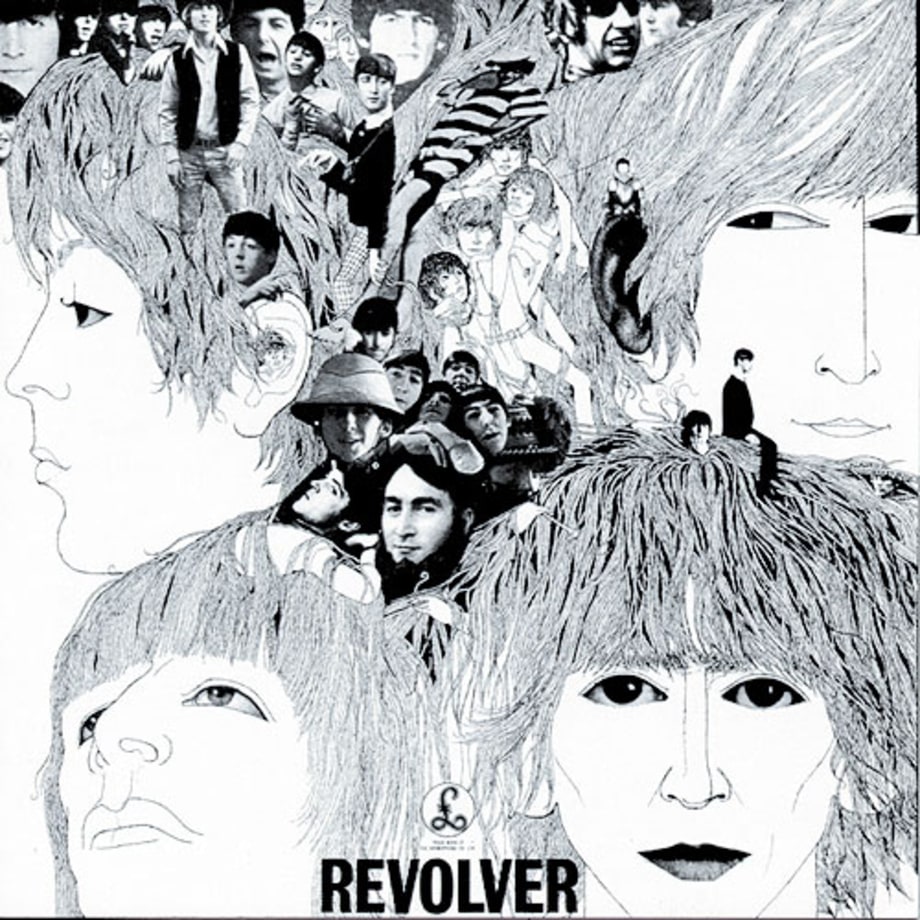Revolver was the seventh studio album released by the Beatles on August 5th, 1966, through Parlophone and Capitol. This marked their final recording project as live performers; however, the band continued to record music after. Revolver was heavily influenced by many other artists and bands, including the likes of Stevie Wonder, Roy Orbison, Boby Dylan, and the Beach Boys. Since the release of the project, Revolver has been considered one of the greatest albums of all time. It was the most innovative album by the Beatles, marking their step into the next level of music. Lennon, McCartney, Starr, and Harrison all had a lot of input on this project, and they all had their shining moments on this project.
Background
In December 1965, the band decided to begin work on Revolver. They initially had wanted to record at Stax Studio in Memphis, opting away from EMI Studio 3 in London. Before everything had settled on recording in Memphis, the band backed out as fans began bombarding the studio. Losing the Memphis studio and producer Jim Stewart, the band went back to London to being recording with George Martin in April. Throughout the recording process, the band constantly took breaks to watch live performances, many of which are somehow incorporated into some tracks. The final mixing stage closed on the 22nd of June, and the Beatles celebrated the completion of what they felt was bond to be one of their most successful albums.
Production
Revolver is widely considered as the Beatles most innovative albums to date. They took a step away from their natural feels and utilized studio technology for the first time. Revolver features plenty of compression and tonal equalization throughout the over thirty-minute project and does so quite successfully. The Beatles went into recording with the mindset that “every instrument should sound unlike itself.” This mindset led to a highly unique sounding project, and one that has continued to be remembered as such. In addition to the utilization of studio technology, the band incorporated a plethora of instruments including an Indian tambura and table, vibraphone, clavichord, and a tack piano.
While it is easy to classify the entire production as unique, many of the individual tracks have unique techniques used as well. In “Tomorrow Never Knows,” Lennon sang his vocals through twin revolving speakers inside a Leslie cabinet. A similarly unique tactic was used in “Got to Get You into My Life,” where they placed microphones inside the bells of brass instruments to achieve their desired sound. They consistently kept utilizing instrumental breaks, and one of the more notable ones featured a French horn, played by Alan Civil in “For No One.” These small touches are ultimately the biggest highlights of this project, as the instrumentation from track one to track fourteen keeps the listener desiring more.
Vocal Performance
One of the best aspects of the Beatles is their inclusion of all four members, and these is nothing short of that here. Revolver gives each member their own time to shine. While Lennon and McCartney headline a majority of the project, Starr and Harrison also have their moments. All of their vocal performances were outstanding throughout, and the peak of the vocals come when all four provide backing vocals, such as in “Taxman.” It is also apparent that there was influence in the vocal styles and patterns as well, such as in “Here, There and Everywhere” which took inspiration from the Beach Boys’ “God Only Knows.” They mimic a mellower song on this track, and regardless of the style of song, the vocals match exactly what was needed of them in not just this track but the entire project.
Conclusion
Revolver is by far one of my favorite listens so far, and it has certainly stood the test of time. The experimentation was exceptionally successful, cementing the Beatles into their next step. While it is arguable that Revolver is the best project put out by the band, one thing is for certain: it is one of the best produced projects in all of music history.
Song Rankings
- “Eleanor Rigby”
- “Got to Get You into My Life”
- “She Said She Said”
- “Here, There and Everywhere”
- “For No One”
- “Taxman”
- “I Want to Tell You”
- “I’m Only Sleeping”
- “And Your Bird Can Sing”
- “Doctor Robert”
- “Tomorrow Never Knows”
- “Love You To”
- “Yellow Submarine”
- “Good Day Sunshine”
Strongest Track
The strongest track on this project lays on “Eleanor Rigby.” This track talks about the narrative about perils of loneliness and follows a story while doing such. The highlight of this track, which is prominent all over Revolver, is the production. This track was arranged with a string octet that steals the show and sounds phenomenal. The dramatic opening was just the beginning, leading into McCartney’s fast-paced vocals.
Weakest Track
This is a toss-up between “Good Day Sunshine” and “Yellow Submarine,” however, it goes to the first. “Good Day Sunshine” is dominated by McCartney’s piano, but that’s about it. The vocals are lackluster, the production apart from the piano is mid-level, and there isn’t much substance to the meaning of the track.
Final Notes
As always, take the reviews as opinion pieces. Not everyone will share the same views. As for these opinions, leave them below to share your thoughts. We also suggest subscribing to our emails to keep up to date with posts. To do so, go under the tab “Contact” and fill out the contact form. This will allow you to receive weekly emails of recaps. Finally, go give Revolver a listen for yourself.



One response to “Revolver (1966) – The Beatles”
Good review! The part I always like about the Beatles albums is the different techniques they use. I also never really understood the point of yellow Submarine. Keep up the good works!